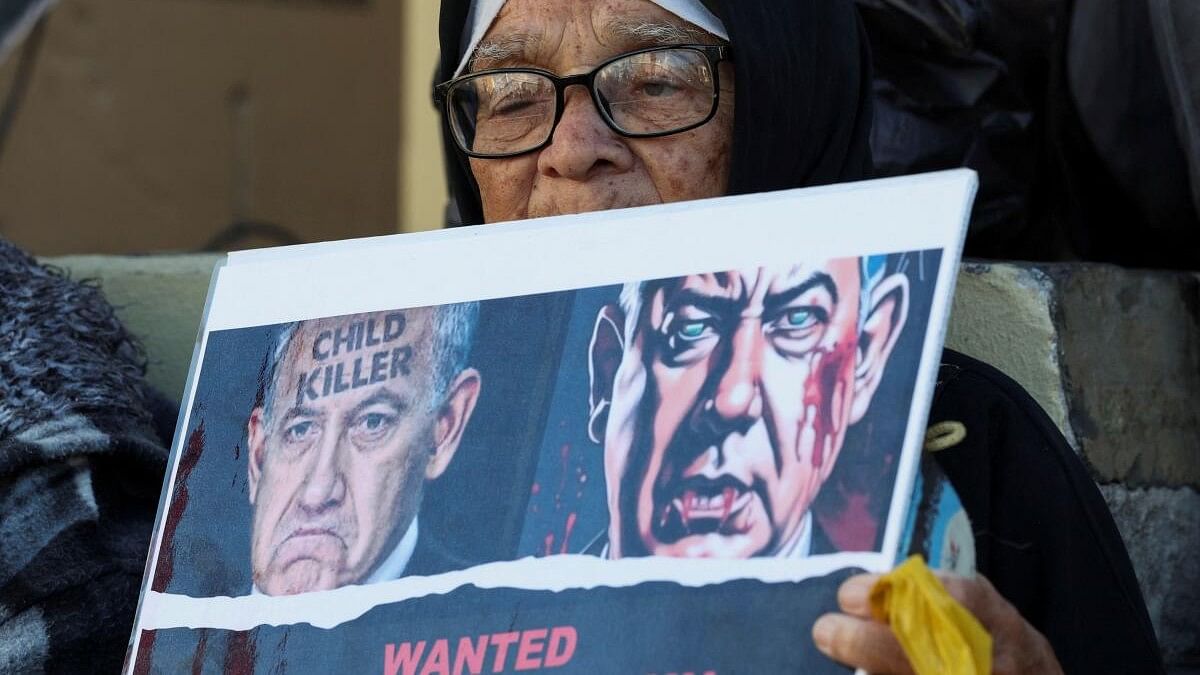
Credit: Reuters Photo
By Noah Feldman
On Thursday, January 11, Israel will defend itself against genocide allegations in the United Nations’ International Court of Justice. But that doesn’t mean what you might think.
The ICJ is an unusual court. Its function is for governments to address their problems by suing each other under international law instead of, say, going to war. But it’s not a criminal court, it doesn’t have prosecutors, and it can’t try people for war crimes or crimes against humanity such as genocide. That makes it very different from the International Criminal Court.
The ICJ lawsuit is being brought by the government of South Africa following a 2022 rule change that allows any country to sue any other country, provided it can say it has an interest in international law being followed. South Africa is asking the court to issue a provisional order — the international analogue to a temporary restraining order — directing Israel to stop its military operations in Gaza. Even if the court were to do so, it has no direct mechanism for enforcement. Any enforcement action would have to come from the UN Security Council, where the US has a veto.
Until recently, to bring a suit in the ICJ, a state had to show that it had been directly affected by the actions of the party it was suing. But in 2022, the ICJ changed course. In a case brought by the Gambia against Myanmar, alleging genocide against Rohingya Muslims, the ICJ adopted the rule that any state that has signed a treaty may bring a suit against any other signatory for failing to follow the treaty. The legal Latin name for this rule is “erga omnes partes,” literally, “toward all parties.”
This shift dramatically expanded the range of cases the ICJ could hear. It was an invitation to governments to ask the court for, essentially, symbolic rulings. To issue a provisional order, all the ICJ has to do is to find that the allegations are “plausible.” That exceedingly low standard makes for an attractive opportunity for governments to score political points by hauling other governments into court.
The international treaty that outlaws genocide defines it as committing various violent acts with the “intent to destroy, in whole or in part, a national, ethnical, racial or religious group, as such.” Israel forcefully denies its goal in Gaza is to destroy the Palestinian people but rather to rescue Israeli hostages and hold Hamas accountable for its Oct 7 attacks on Israel. In my view, it would be extremely difficult to prove the charge, which doesn’t fit the situation of the Gaza war. But plausibility may be in the eye of the beholder, and the ICJ may want to take the opportunity to condemn not only Israel but the extremist members of the Israeli cabinet who have called for pushing Gaza Palestinians into Egypt.
The ICJ decides cases by a majority rule of its 15 judges. It also has a rule that both the plaintiff and defendant get to appoint one judge of their own choosing for the purposes of the case. In principle, these ad hoc judges, as they’re called, are meant to act independently. In practice, everyone understands that they tend to reflect the views and positions of the country that picked them.
In a surprising but extremely smart move, Benjamin Netanyahu chose retired Justice Aharon Barak, the former chief of Israel’s highest court, as the Israeli judge to the tribunal.
Now 87 and intellectually as sharp as ever when I last saw him in late December, Barak is widely known and highly respected in the international legal community. He joined the Israeli high court in 1978, when he was just 42, and served as its head from 1995-2006. During his ascendancy, the court issued multiple important decisions applying international law to everything from Israel’s conduct of wars to its occupation of the West Bank. Barak also led what came to be called Israel’s constitutional revolution, a series of activist judicial decisions that built a kind of makeshift constitutional structure out of a series of so-called “basic laws” enacted by the Knesset. Because Israel has no single written document called a constitution, this body of law made Barak and his colleagues into retrospective framers.
Barak’s legacy was in play when Netanyahu’s government introduced a series of judicial reform measures seeking to limit the powers of the high court, sparking a controversy that consumed the country until the Oct. 7 attacks. Israel’s high court, without the retired Barak, recently issued a major decision striking down some of those measures. The judgments were broadly understood as a vindication of Barak’s legacy.
For Netanyahu to appoint Barak therefore represents a turn toward national unity. It signals that, when it comes to Israel’s international reputation, the internal strife leading up the Gaza war can be set aside. And Barak’s presence on the ICJ panel ensures that Israel will be represented by its most famous and revered judge.
Israel rightly sees the importance of showing the world that the Jewish state isn’t genocidal, even though Israelis’ trust in international institutions is as low as it has ever been. The case, which will garner lots of attention, is thus as much a test of the ICJ and its new openness to cases as it is of the underlying legal questions about Israel’s conduct in Gaza.